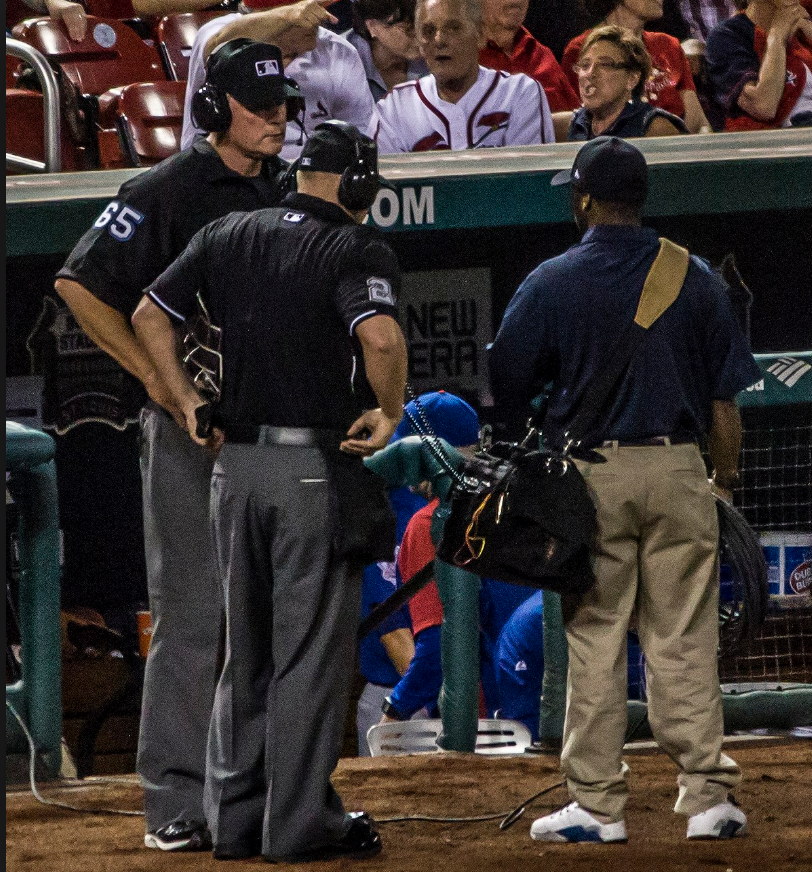
AI umpire calls balls and strikes for Atlantic League, but will still have human counterparts like these.
Using AI Skills to Better Judge Baseball Calls, Poker Hands
If you are a fan of the Atlantic Baseball League then it may have been a bit of a surprise last Wednesday when they unveiled the AI umpire that will call balls and strikes, according to The Washington Post. That’s just the beginning of changes AI will be contributing to a variety of professional sports.
While there will still be a human umpire behind the plate who can overrule the computer, the software and equipment will sit just above and behind home plate and communicate with umpires through an earpiece. According to a story on usatoday.com, the computer will start calling balls and strikes in seven league stadiums for the second half of the 2019 season.
“I have seen this coming. It’s inevitable,” Atlantic League umpire Derek Moccia told the Post. “The game is changing. Baseball needs to speed up to keep up with the world. And if you want to be on board with this, you have to keep up. The game is bigger than you, bigger than any player.”
In February, the Atlantic League and MLB announced a three-year agreement that said the deal will let the big leagues “implement changes to Atlantic League playing rules in order to observe the effects of potential future rule changes and equipment,” meaning it will essentially serve as a testing ground.
Major League Baseball wasted little time trying it out, gathering as much data as possible, with negotiations ahead of the 2021 collective bargaining agreement in which the players and ownership will have to approve such rule changes.
AI Bot Beats the Pros at Texas Hold’em
In another episode of the fictitious series, Watching AI Grow, we find out that a bot learned how to play poker better than top humans in multi-player Texas Hold ’em is seen as an AI milestone — like when IBM’s Deep Blue supercomputer beat chess legend Garry Kasparov. The journal Science reported the findings. While they used pretend money, the program learned quickly how to take the pretend money as though it were real.
The easiest way to quantify how well Pluribus did was by how much money it was winning. “If this were for live money, the bot would be winning at a rate of about $1,000 an hour,” says Facebook AI research scientist Noam Brown, who designed Pluribus with Tuomas Sandholm, his adviser at Carnegie Mellon University.
In an article from npr.org reveals that four-time World Poker Tour title holder Darren Elias helped test the program’s skills, playing Texas Hold ’em against a whole table of the bots.
“It’s just me and then five versions of this AI poker bot, which I would play against every day, thousands of hands,” Elias said. He’d take on four tables full of them at a time, and he’d alert the computer scientists who designed the bot when it made a mistake. Pluribus — so-named because it takes on many opponents at once — learns by playing against itself over and over and remembering which strategies worked best.
The bot quickly became a stronger player. “It was improving very rapidly, where it went from being a mediocre player to basically a world-class-level poker player in a matter of days and weeks. Which was pretty scary,” Elias said.
A superhuman poker bot is also humbling and a little sad, Elias says. “There’s no going back. The bots will always be better than us.”
read more at npr.org







Leave A Comment